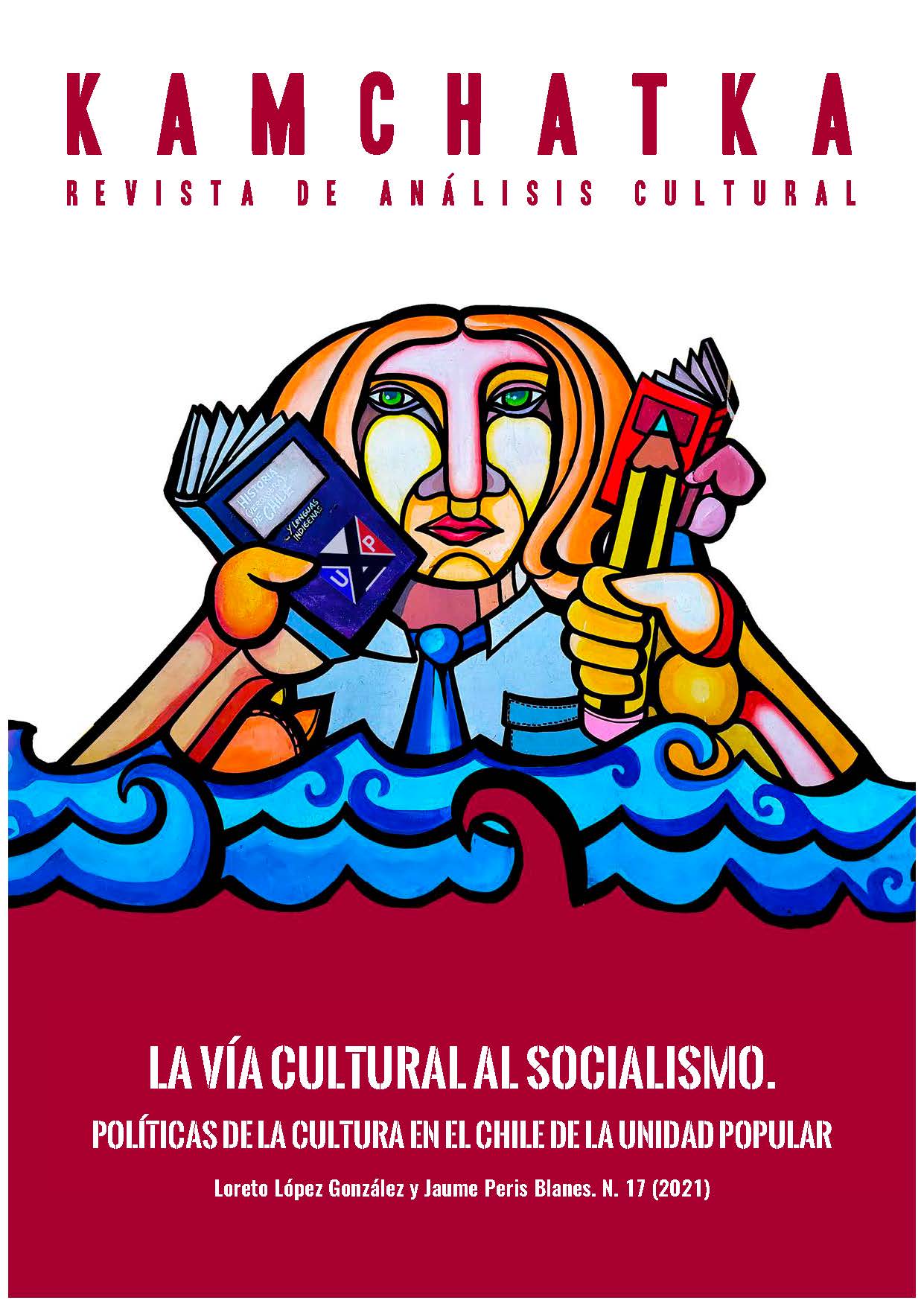A figure in the shadows: Salvador Allende in Chilean films of the post-dictatorship
DOI:
https://doi.org/10.7203/KAM.17.18014Keywords:
Salvador Allende, Chile, the post-dictatorship culture, documentaries, fiction films Abstract
Abstract
This essay analyses three contemporary Chilean films that propose fictional and documentary representations about Presidente Salvador Allende’s life and political legacy. The hypothesis that guides the analysis states that these films question the overshadowed facet of Allende’s figure within the cultural scene of the post-dictatorship. The work carried out three objectives. Firstly, analysing the utterance and compositional resources and strategies utilised to recreate Allende’s private and public life. Secondly, looking into meanings conveyed by those resources and strategies. Thirdly, explaining how the film narratives dialogue with other social discourses by establishing questioning visions regarding the opacity of both Allende’s figure and – more broadly – social memories about the UP’s political experience. The corpus encompassed the following films: Salvador Allende (2004), by Patricio Guzmán, Allende en su laberinto [Allende in his labyrinth] (2014) by Miguel Littin and Allende mi abuelo Allende [Allende my grandfather Allende] (2015) by Marcia Tambutti.
 Downloads
Downloads
 References
References
Aguilar, Gonzalo (2015). Más allá del pueblo. Imágenes, indicios y políticas del cine. Buenos Aires: Fondo de Cultura Económica.
Alvear Atlagich, Fernando. “Genealogía de una ruptura. El proceso de la renovación socialista en Chile”. Revista de Ciencias Sociales 36 (2016): 7-34. http://www.redalyc.org/articulo. oa?id=70847081002
Bossay , Claudia. “Allende en su laberinto. Ficciones ficcionalizadas”. La fuga 17 (2015).
Bravo Vargas, Viviana (2017). Piedras, barricadas y cacerolas. Las Jornadas Nacionales de Protesta. Chile 1983-1986. Santiago: Ediciones Universidad Alberto Hurtado.
Brooks, Peter (1995). The Melodramatic Imagination. Balzac, Henry James, Melodrama, and the Mode of Excess. New Haven & London: Yale University Press.
Gallardo, Milena y Salomone, Alicia (2018). “Murmullos en el silencio. Subjetividades, lenguajes y estrategias compositivas en documentales autobiográficos de hijos(as) y nietos(as) en Chile”. Sandoval, Juan y Donoso, Alina (eds.). Investigación Interdisciplinaria en Cultura Política, Memoria y Derechos Humanos. Valparaíso: Centro de Estudios Interdisciplinarios sobre Cultura Política, Memoria y Derechos Humanos: 217-246.
González, Rodrigo (2015). “Ciudadano Allende: sus retratos en la pantalla y el teatro”.
González, Sebastián, Munjin, Vanja y Pinto, Iván. “Figurar la comunidad. Cine chileno en tres tiempos 1990-2017”. Cinémas d’Amérique latine 26 (2018): 102-117.
Guzmán, Patricio (2000). La batalla de Chile. Historia de una película. Santiago de Chile: Catalonia.
Guzmán, Patricio (2004). Salvador Allende. Chile: Alta Films.
Guzmán, Patricio. “La batalla de Chile. Nota del autor”.
Laval, Christian y Dardot, Pierre (2015). Común. Ensayo sobre la revolución en el siglo XXI. Barcelona: Gedisa.
Littin, Miguel (2014). Allende en su laberinto. Chile y Venezuela: Zetra Films.
Millán, Gonzalo (1997). La ciudad. Quebec: Maison Culturelle Québec-Amérique Latine.
Moulián, Tomás (1997). Chile: anatomía de un mito. Santiago: LOM.
Pollak, Michael. “Memória, esquecimiento, siléncio”. Estudos Históricos 3 (1989): 3-15.
Ramírez, Elizabeth. “Estrategias para (no) olvidar”. Aisthesis 47 (2010): 45-63.
Rojo, Grínor (2002). “La identidad y la literatura”. Caligrama 7 (2002): 79-202.
Ruiz, María Olga. “Estallidos de la memoria”. Puentes 14 (2004): 38-44.
Tambutti, Marcia (2015). Allende mi abuelo Allende. Chile: Errante.
Venegas Valdebenito, Hernán (2009). “Trayectoria del Partido Comunista de Chile. De la crisis de la Unidad Popular a la política de rebelión popular de masas”. Universum 2 (2009): 262- 293.
Downloads
Published
How to Cite
-
Abstract731
-
Artículo PDF (Español)543
Issue
Section
License
This journal provides an immediate free access to the content on the principle that freely make investigation available to the public, which promotes an increased global knowledge exchange.
Unless otherwise indicated, texts published in this journal are under the license Attribution-NonComercial 4.0 by Creative Commons. These texts may be copied, distributed and publicly communicated whenever the publication’s author and title are quoted and whenever they are not used for commercial purposes. In any case, intellectual property of the articles and its potential economic rights entirely belong to its authors.
The full license can be consulted on https://creativecommons.org/licenses/by-nc/4.0/. We encourage authors to disseminate papers published in Kamchatka. Journal of cultural analysis electronically, in institutional digital repository or in their websites.





